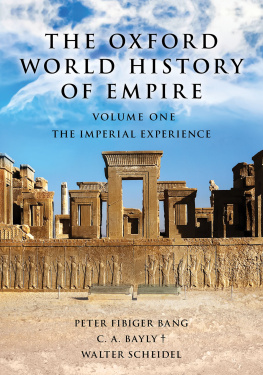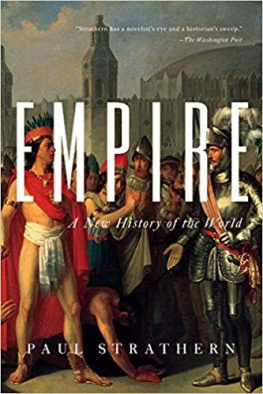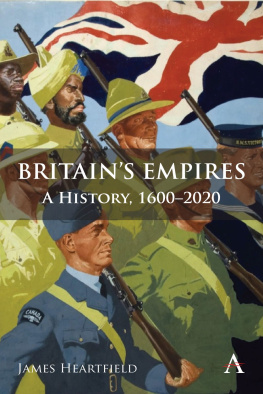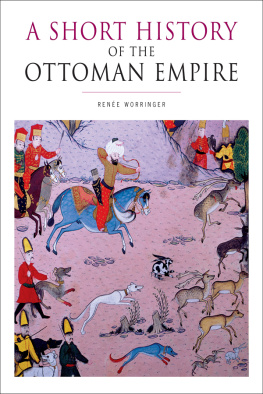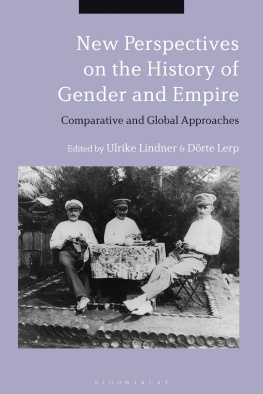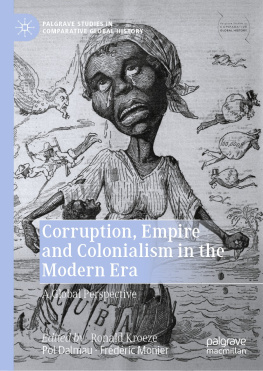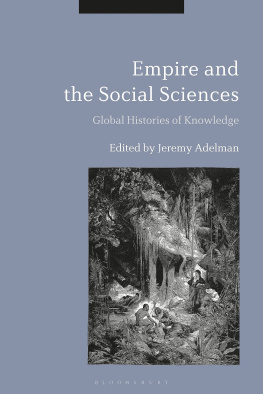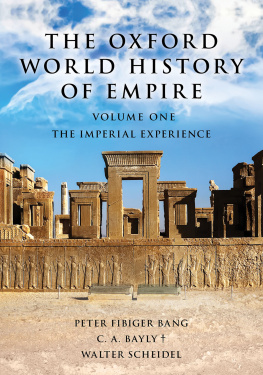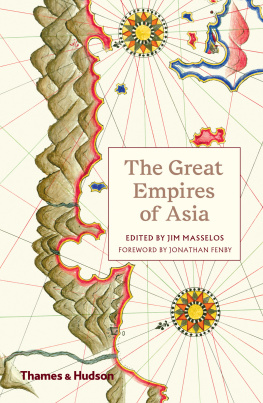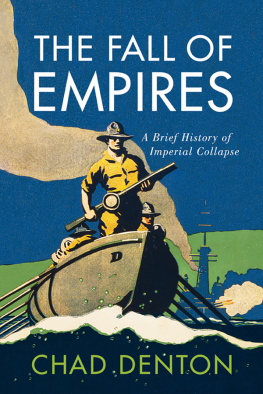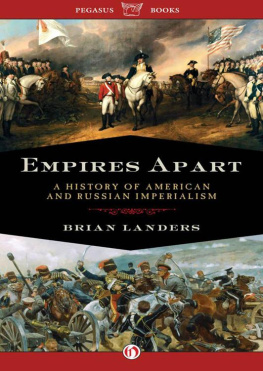The Oxford World History of Empire
In Two Volumes

Oxford University Press is a department of the University of Oxford. It furthers the Universitys objective of excellence in research, scholarship, and education by publishing worldwide. Oxford is a registered trade mark of Oxford University Press in the UK and certain other countries.
Published in the United States of America by Oxford University Press
198 Madison Avenue, New York, NY 10016, United States of America.
Oxford University Press 2021
All rights reserved. No part of this publication may be reproduced, stored in a retrieval system, or transmitted, in any form or by any means, without the prior permission in writing of Oxford University Press, or as expressly permitted by law, by license, or under terms agreed with the appropriate reproduction rights organization. Inquiries concerning reproduction outside the scope of the above should be sent to the Rights Department, Oxford University Press, at the address above.
You must not circulate this work in any other form and you must impose this same condition on any acquirer.
CIP data is on file at the Library of Congress
ISBN 9780197532768
eISBN 9780197532744
DOI: 10.1093/oso/9780197532768.001.0001
All histories, then, even histories of the fragment are implicitly universal histories.
C. A. Bayly
(Birth of the Modern World, 2004, 8)
Contents
Volume 2
The History of Empires
Peter Fibiger Bang
Peter Fibiger Bang
Juan Carlos Moreno Garca
Piotr Steinkeller
Gojko Barjamovic
Matthew W. Waters
Walter Scheidel
Peter Fibiger Bang
Christelle Fischer-Bovet
Himanshu Prabha Ray
Mark Edward Lewis
Peter Fibiger Bang
Matthew P. Canepa
Craig Benjamin
Peter Fibiger Bang
Andrew Marsham
Mark Edward Lewis
John N. Miksic
Michael D. Coe
Anthony Kaldellis
Rosamond McKitterick
Peter Fibiger Bang
Nikolay N. Kradin
David M. Robinson
Sunil Kumar
Jacob Tullberg
Luciano Pezzolo
Bruce S. Hall
Peter Fibiger Bang
Michael E. Smith and Malle Sergheraert
R. Alan Covey
Peter Fibiger Bang
Dariusz Koodziejczyk
Rajeev Kinra
Josep M. Delgado and Josep M. Fradera
Pamela Kyle Crossley
Francisco Bethencourt
Leonard Bluss
Nicholas Canny
Peter Fibiger Bang
C. A. Bayly
David Todd
Dominic Lieven
Josep M. Fradera
Amy S. Greenberg
Pekka Hmlinen
Michael A. Reynolds and Rana Mitter
Murray Last
Peter Fibiger Bang
Daniel Hedinger and Moritz von Brescius
Stuart Ward
Geoffrey Hosking
Andrew Preston
Frederick Cooper
Peter Fibiger Bang is Associate Professor of History at the University of Copenhagen. His work has concentrated on (re)contextualizing the Roman Empire in world history, often in collaboration with his two co-editors, and tackles a wide range of topics, from the economy to state-formation and power. A mainstay has been the attempt to explore comparisons with other pre-colonial empires such as the Mughals, the Ottomans, and the Chinese. Among his books are The Roman Bazaar (Cambridge 2008); with C. A. Bayly, Tributary Empires in Global History (Palgrave 2011); with D. Kolodziejczyk, Universal Empire (Cambridge 2012); with W. Scheidel, The Oxford Handbook of the State in the Ancient Near East and Mediterranean (Oxford 2013). Irregulare Aliquod Corpus? Comparison, World History and the Historical Sociology of the Roman Empire (Copenhagen 2014) offers a theoretical and methodological manifesto.
Gojko Barjamovic is Senior Lecturer on Assyriology at Harvard University. His main area of research is the economic and social history of Western Asia in the second millennium BCE. His particular focus is on the study of trade in the Bronze Age and the development of early markets and trans-regional interaction. He also writes on early state power and civic institutions of governance, historical geography, intellectual history, chronology, and food in the ancient world.
C. A. Bayly was the Vere Harmsworth Professor of Imperial and Naval History at the University of Cambridge, a Fellow of St. Catharines College, Cambridge, Fellow of the British Academy and Trustee of the British Museum. He used his basis in late Mughal and Colonial Indian history to rethink the character of imperial and global history. Characteristic of his writing was an unmatched capacity to mobilize his wide-ranging interests to see the links between seemingly contradictory phenomena and a keen sense of the agency of subject communities. From 2005 to 2009 he was the vice-chair of a European research network, funded by COST and chaired by Peter Bang, that sought to explore comparisons between pre-colonial empires. Among his many writings are Rulers, Townsmen and Bazaars (Oxford 1983), Imperial Meridian (Harlow 1989), The Birth of the Modern World (Malden 2004) and the posthumous Remaking the Modern World 19002015 (Hoboken & Chichester 2018).
Craig Benjamin is a Professor of History in the Meijer Honors College at Grand Valley State University, where he researches and teaches Big History and ancient Eurasian history. Recent books include Big History: Between Nothing and Everything (McGraw-Hill, 2014); Cambridge History of the World Vol IV (Cambridge University Press, 2015) and Empires of Ancient Eurasia: The First Silk Roads Era 100 BCE250 CE (Cambridge University Press, 2018). Craig has recorded programs and courses for the History Channel and The Great Courses, and lectures for Archaeological Tours, and Scientific American and New York Times cruises.
Francisco Bethencourt is Charles Boxer Professor of History at Kings College London since 2005. He is the author of Racisms: From the Crusades to the Twentieth Century (Princeton University Press, 2013) and The Inquisition: A Global History, 14781834 (Cambridge University Press, 2009). He has edited Cosmopolitanism in the Portuguese-Speaking World (Brill, 2017) and Utopia in Portugal, Brazil and Lusophone African Countries (Oxford University Press, 2015). He organized an exhibition on Racism and Citizenship in Lisbon, MaySeptember 2017, seen by ca. 60,000 visitors.
Leonard Bluss is Emeritus Chair, History of Asian-European relations, Leiden University, and Visiting Professor at the Research Institute of Southeast Asian Studies, Xiamen University. Some publications include: Visible Cities, Batavia, Canton and Nagasaki and the Coming of the Americans (Harvard University Press, 2008), Bitter Bonds, A Colonial Divorce Drama of the Seventeenth Century (Markus Wiener, 2002), and Strange Company (KITLV Press, 1986).
Moritz von Brescius is Senior Lecturer in Modern History at the University of Bern. He has studied in Berlin, Oxford, Florence, and Cambridge. His first book is German Science in the Age of Empire: Enterprise, Opportunity and the Schlagintweit Brothers (Cambridge University Press, 2019). His doctoral dissertation was awarded several prizes. In 2020-2021, he is a John F. Kennedy Memorial Fellow at the CES, University of Harvard. His research areas include the global history of science and empire, most recently also the environmental and economic history of plantation economies and the acclimatisation of cash crops as part of the global expansion of commodity frontiers. His next project is about the synthetic age and resource regimes in the nineteenth and twentieth centuries.

